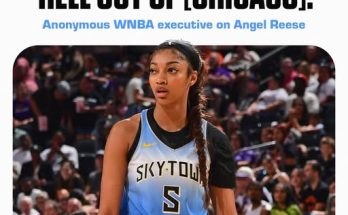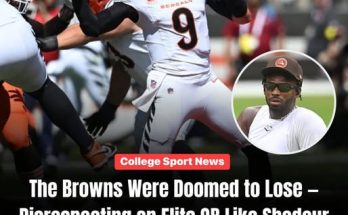The New York Knicks are no stranger to transition. For decades, their pursuit of sustained success has been filled with moments of brilliance and seasons of heartbreak. From their glory days in the 1970s to the struggles of the early 2000s, the Knicks have long carried the weight of one of the NBA’s largest and most passionate fan bases. Now, after losing in the Eastern Conference Semifinals in the 2024-2025 season, the franchise has taken a bold and deliberate step toward changing the narrative. With a new head coach now leading the charge, the question looms large over Madison Square Garden: did the Knicks finally make the right move to chase an NBA championship?
This question can’t be answered with a simple yes or no. It requires a deep dive into the context of the coaching change, the philosophy of the new hire, the current roster, and how this decision fits into the long-term vision of the franchise. It also requires a fair look back at what went wrong in the previous season, where a solid team came up short once again in the playoffs, and what the new coach brings to the table that could change that outcome moving forward.
The 2024-25 season was promising in many respects for the New York Knicks. Under former head coach Tom Thibodeau, the Knicks played hard-nosed, physical basketball, a style that had become the team’s identity during his tenure. Thibodeau emphasized defense, effort, and grit, and that culture helped resurrect a franchise that had been lost in the lottery wilderness for much of the 2010s. However, by the time the playoffs rolled around, that same system began to show cracks. Key players were overworked, the offensive strategy lacked flexibility, and despite home-court advantage in the second round, the Knicks failed to adapt against a more versatile opponent. They were eliminated in six games, and while no one can say the season was a failure, it became clear that the ceiling under Thibodeau might have already been reached.
Management’s decision to part ways with Thibodeau wasn’t necessarily about performance but about potential. Thibodeau had restored credibility and stability, but the front office, led by Leon Rose and William Wesley, now had loftier goals: a championship, not just playoff appearances. They felt that the team needed a coach who could elevate them from strong contenders to true title threats, someone who could innovate offensively, manage rotations more efficiently, and connect with a younger generation of players who thrived on fluidity and creativity.
Enter Jamahl Mosley, the new head coach of the New York Knicks. Mosley, who most recently coached the Orlando Magic, is known for his player development chops, positive energy, and adaptive coaching style. While his tenure in Orlando didn’t include deep playoff runs, it was marked by steady improvement, a strong connection with young players, and a commitment to modern offensive schemes. His hiring by the Knicks signals a shift away from the old-school grind-it-out approach to a more progressive, dynamic style of play.
There are several reasons why this might be the right move at the right time. First, consider the makeup of the current roster. The Knicks are a blend of youth and experience, with Jalen Brunson emerging as a true leader and All-Star point guard. Brunson’s play last season was nothing short of exceptional, and he’s clearly the engine that drives the team. Around him are complementary pieces like Julius Randle, RJ Barrett, Donte DiVincenzo, and Mitchell Robinson. Young talents like Quentin Grimes and Miles McBride have shown flashes of promise, while recent draft picks add depth and potential to the roster.
Under Thibodeau, the offensive system often leaned too heavily on Brunson and Randle in isolation sets. While both are capable scorers, this predictability was exploited by opposing defenses in the postseason. Mosley, in contrast, favors ball movement, spacing, and player motion. He’s a coach who tailors his scheme to his personnel, rather than the other way around. For a Knicks team that sometimes looked stagnant in half-court sets, this adjustment could be the key to unlocking their offensive potential. With Mosley at the helm, expect the Knicks to implement more pick-and-roll variations, off-ball movement, and read-and-react principles that empower every player to contribute.
Moreover, Mosley is respected for his ability to develop young players. This trait will be crucial for the Knicks, who have invested heavily in youth through the draft and recent trades. In Orlando, Mosley helped players like Franz Wagner, Paolo Banchero, and Jalen Suggs grow into confident NBA contributors. In New York, he’ll be tasked with accelerating the development of Grimes, McBride, and others who have yet to fully reach their potential. If even one or two of those players take a leap under Mosley’s guidance, it could significantly bolster the team’s depth and versatility.
Another element worth considering is player relations and leadership. The modern NBA is as much about managing personalities as it is about drawing up plays. Mosley’s reputation as a players’ coach may help create a more open and collaborative locker room culture. While Thibodeau was respected, he was also known for his intense demeanor and demanding style. That approach worked to instill discipline, but over time, it can wear down players—especially in a high-pressure environment like New York. Mosley’s more empathetic and communicative approach could make the Knicks a more cohesive unit, both on and off the court.
Of course, there are risks involved. Mosley has yet to coach a team with championship expectations. Orlando was in the early stages of a rebuild during his tenure, and the pressure in New York is a completely different beast. Every decision will be scrutinized, every losing streak dissected. Mosley will need to demonstrate not only tactical acumen but emotional resilience. The Knicks’ fan base and media environment are among the most intense in professional sports, and navigating that while trying to win at the highest level is no small task.
In terms of tangible success, much will depend on how the Knicks adjust their roster this offseason. Reports have already suggested they are exploring trades to bring in another star-caliber player to complement Brunson. Whether that’s a wing scorer, a stretch big, or another playmaker will depend on the market, but Mosley’s adaptability means the team can be more flexible in its search. Unlike the previous regime, which often made roster decisions based on fit within a rigid system, the new coaching staff may prioritize acquiring the best talent available and then building around it with a versatile scheme.
Looking at the Eastern Conference landscape, the Knicks are positioned well. The Boston Celtics remain the favorites after winning the title in 2025, but they’re not unbeatable. Milwaukee has an aging core, Miami is always a threat but inconsistent, and Philadelphia’s future remains murky with roster uncertainty. The Cleveland Cavaliers and Indiana Pacers are rising, but still developing. If the Knicks can stay healthy, continue to grow internally, and add one more significant piece, there’s no reason they can’t be in the conversation for a Finals appearance.
The new coaching hire also reflects a philosophical alignment within the organization. Leon Rose and the front office are betting on continuity in leadership, innovation on the bench, and internal development as the formula for long-term success. They’ve avoided the temptation to make panic trades or overpay for aging stars. Instead, they’ve taken a more measured approach, building a strong foundation and now empowering a new leader to maximize its potential. That kind of organizational stability is rare in New York sports and could be the hidden advantage that helps the Knicks break through.
Additionally, Mosley’s hiring could open up new recruiting avenues in free agency. Players around the league talk, and a coach who is seen as forward-thinking and player-friendly can be a powerful draw. The Knicks already have the allure of playing in the league’s most iconic arena, in one of the world’s biggest cities. Combine that with a respected coach, a competitive roster, and the chance to make history, and New York becomes a much more attractive destination for star players.
Ultimately, the success of this coaching change won’t be determined in one season. Championships are built over time, through smart decisions, player growth, and strategic adjustments. But this move gives the Knicks a real chance. For the first time in years, the front office, coaching staff, and roster seem aligned in vision and purpose. That kind of unity doesn’t guarantee a title, but it creates the conditions for one. It sets a culture where players feel supported, where strategies are modern and flexible, and where the long-term goal—raising a banner in Madison Square Garden—feels not only possible but plausible.
It’s also important to remember that great coaching hires often don’t show immediate results. When Steve Kerr took over the Golden State Warriors, the core was already in place, but his style unlocked a new level of excellence. Erik Spoelstra took time to evolve into one of the best minds in basketball. Even Gregg Popovich needed years to mold the Spurs into a dynasty. Patience, when coupled with progress, is often the secret ingredient to sustained success. The Knicks’ leadership must be willing to give Mosley the time, resources, and trust to mold this team into his vision.
In the end, the New York Knicks have made a bold decision, one that departs from their recent identity but looks ahead with vision and ambition. Jamahl Mosley is not a proven winner yet, but he might be exactly the kind of coach who grows with his team into greatness. If he can bring innovation, empower his players, and cultivate a modern, versatile system, the Knicks could very well find themselves competing for a championship—not just in theory, but in reality. The road won’t be easy, and the pressure will be immense, but for the first time in a long time, the Knicks seem to have made a coaching decision not based on fear or nostalgia, but on future potential and alignment. And that may be the best possible move they could have made.



